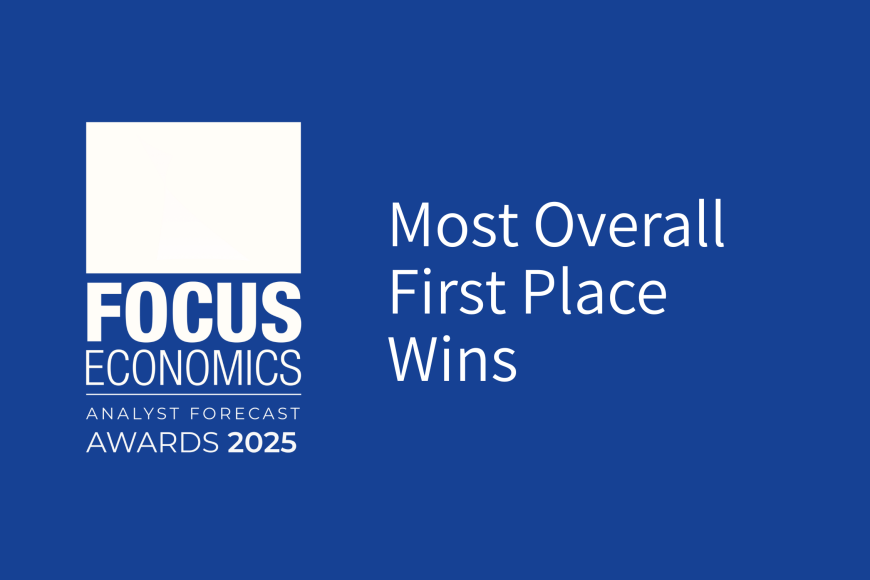Our purpose
We help drive growth and mitigate risk through clear, actionable macroeconomic insight and data. Rooted in deep expertise and intellectual independence, Capital Economics turns global complexity into strategic advantage.

Who we are

Our Promise
Boldness
Originators who challenge market assumptions – constantly.
Clarity
Concise, actionable insights that drive decision-making.
Expertise
A global team of economists delivering best-in-class analysis.
AWARDS
We’ve been helping businesses make more informed decisions for more than 25 years, building a track record that is reflected in the long list of awards that we’ve received for our analysis and forecasting.

Capital Economics has been recognised as the most accurate forecaster of economies and commodity markets by FocusEconomics, winning more first-place awards for overall forecasting accuracy than any other provider.

Diversity, Equity & Inclusion
Diversity powers our macroeconomic analysis, by bringing varied perspectives that reflect market complexity. This strategic commitment, grounded in fairness and ethics, strengthens our ability to challenge conventional thinking and deliver truly independent insights.
A track record of helping clients navigate global macro and markets
A track record of helping clients navigate global macro and markets

Shape the future of Capital Economics
At Capital Economics, we celebrate intellectual curiosity, encourage bold thinking, and take pride in building a diverse, creative team. Most importantly, we invest in our people; supporting growth, collaboration, and innovation at every stage. Explore our current opportunities and see where your talents can thrive.
If you would like to be considered for future opportunities, please send a speculative application, including your CV and a cover letter outlining your interest in joining our company.

Learn about our graduate scheme, based in London. Applications for September 2026 open in Spring 2026.
Learn about our Fast-Track Scheme to become a trainee economist based in our Singapore office. Applications for May 2027 will open in May 2026.